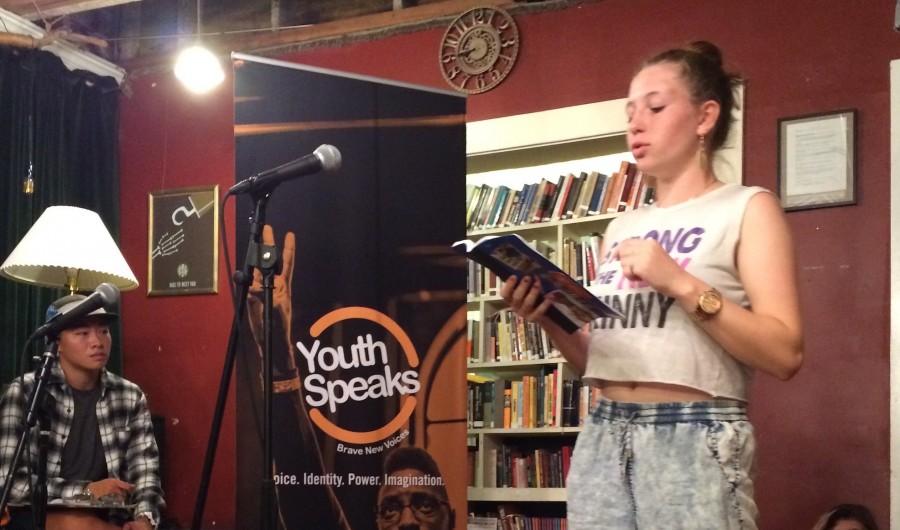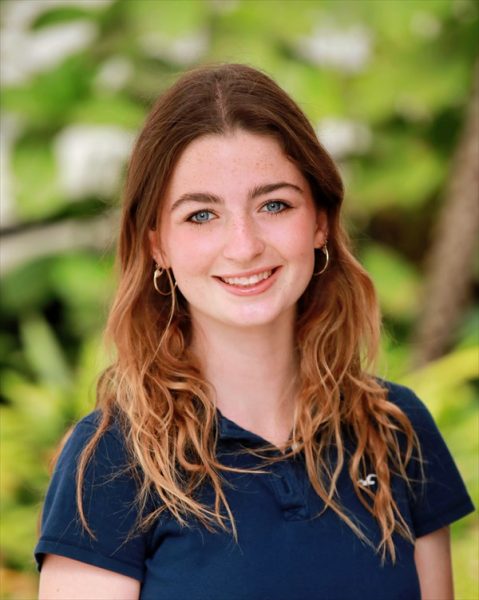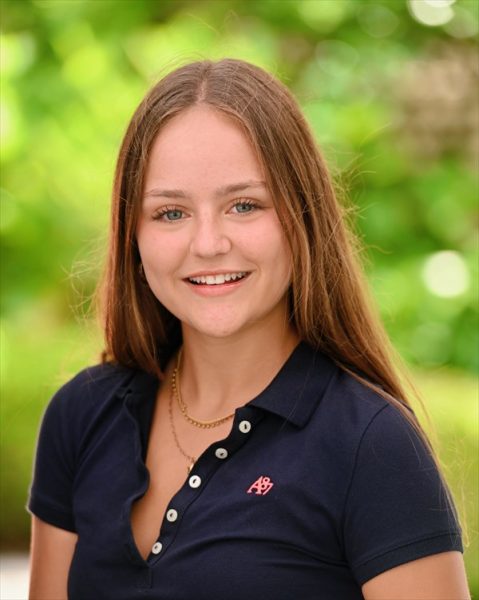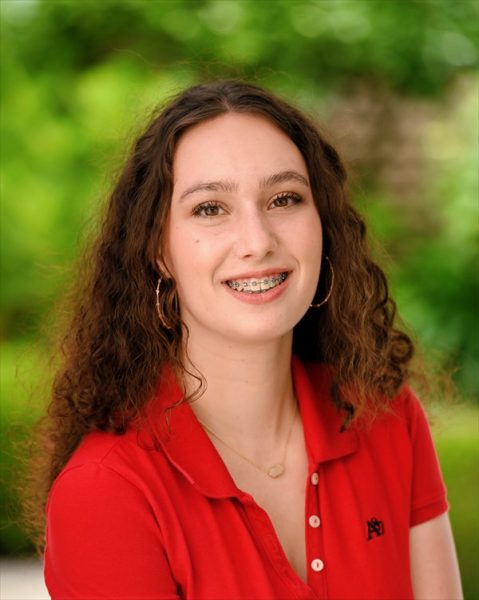Youth should be seen and heard
Organization allows youth to share their thoughts on social issues through poetry.
Oakland Technical High School’s Youth Poet Laureate Finalist Lucy Flattery-Vickness shares two of her original poems as the feature poet for Youth Speaks Open-Mic Night.
October 5, 2015
From the outside, a passerby might think it to be a closed pirate shop, but inside 826 Valencia, behind the pirate-themed paraphernalia, people of varying ages from all over the city gather on a bi-monthly basis to observe an under 21 open-mic night hosted by Youthspeaks.
The non-profit organization Youthspeaks creates a safe space for young people to find and develop their voices in the context of spoken word poetry and social justice, according to Chief Operating Officer Paula Smith Arrigoni.
“We think about reading and writing, as well as being more confident and feeling empowered to use your voice while also being physically engaged,” Arrigoni said.
The Youth leadership program, Spokes, provides an opportunity for teenagers, such as Maya Greenhill to be youth representatives for the organization, helping set up open-mic nights and workshops.
“It’s the only way I survived junior year,” Greenhill said. “It was almost like a therapy session.”
James Krass founded the organization in 1996 after receiving his master’s degree in creative writing and noticed a lack of space for young people to have their voices appreciated and nurtured.
“A friend of mine and I started offering free writing programs to kids in San Francisco, which led to the first Youthspeaks poetry slam,” Krass said. “Then we started getting people from all over the Bay Area. Now we’re a national organization that serves tens of thousands of kids every year.”
In addition to after-school programs, Youthspeaks puts on assemblies and workshops in schools.
“Our teaching artists will go into a school with a prompt about what’s happening in the world and engage the young people in a conversation where they will really start thinking through different feelings and emotions that apply through that prompt,” Arrigoni said.
The organization encourages people of all ages and socio-economic backgrounds to participate in workshops and open-mic nights, but resources tend to be directed towards youth with limited opportunities to develop their voice at home and at school.
“Our target audience is youth of color or kids that have been marginalized in other activities where they have just never ever felt like they were in the center of the conversation,” Arrigoni said.
While the program is mainly centered around speaking and writing, there is a more important takeaway of self-confidence and self-respect, according to Krass.
“Kids take away a lot from the program, but I think the most important thing they learn is that their individual voice matters, and the voice of other kids matter too,” Krass said. “It is important to not only speak but to listen.”










